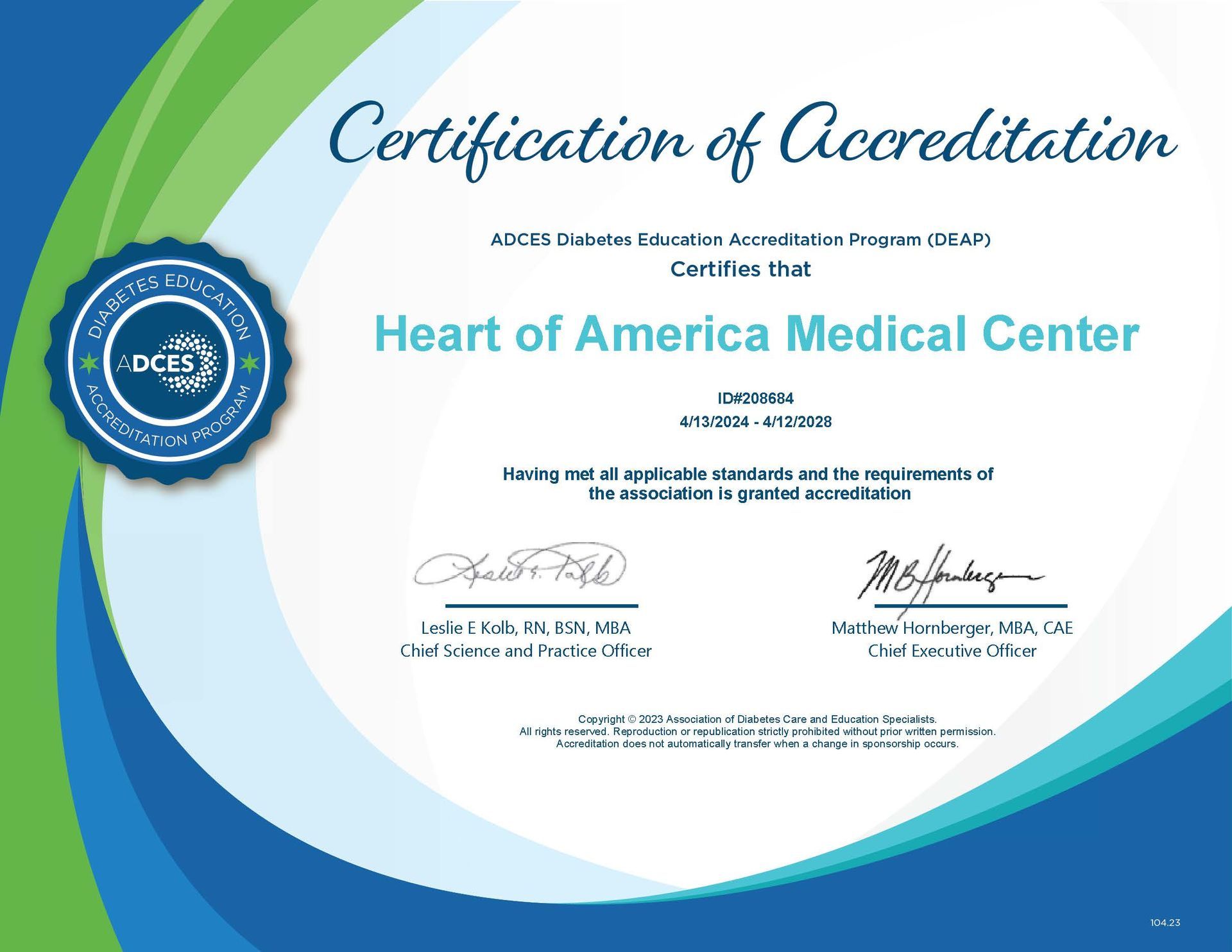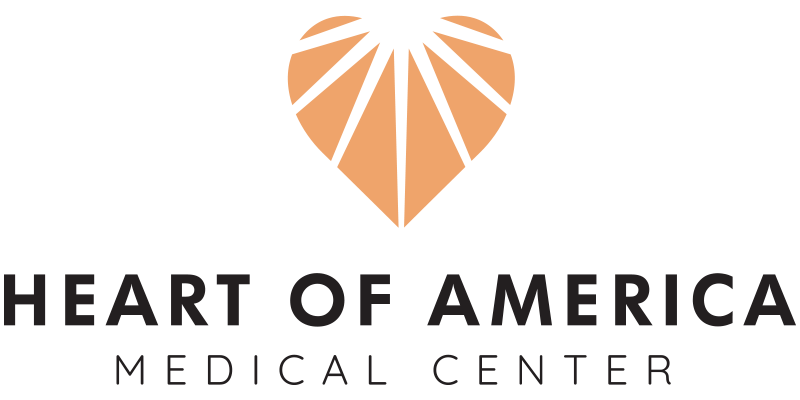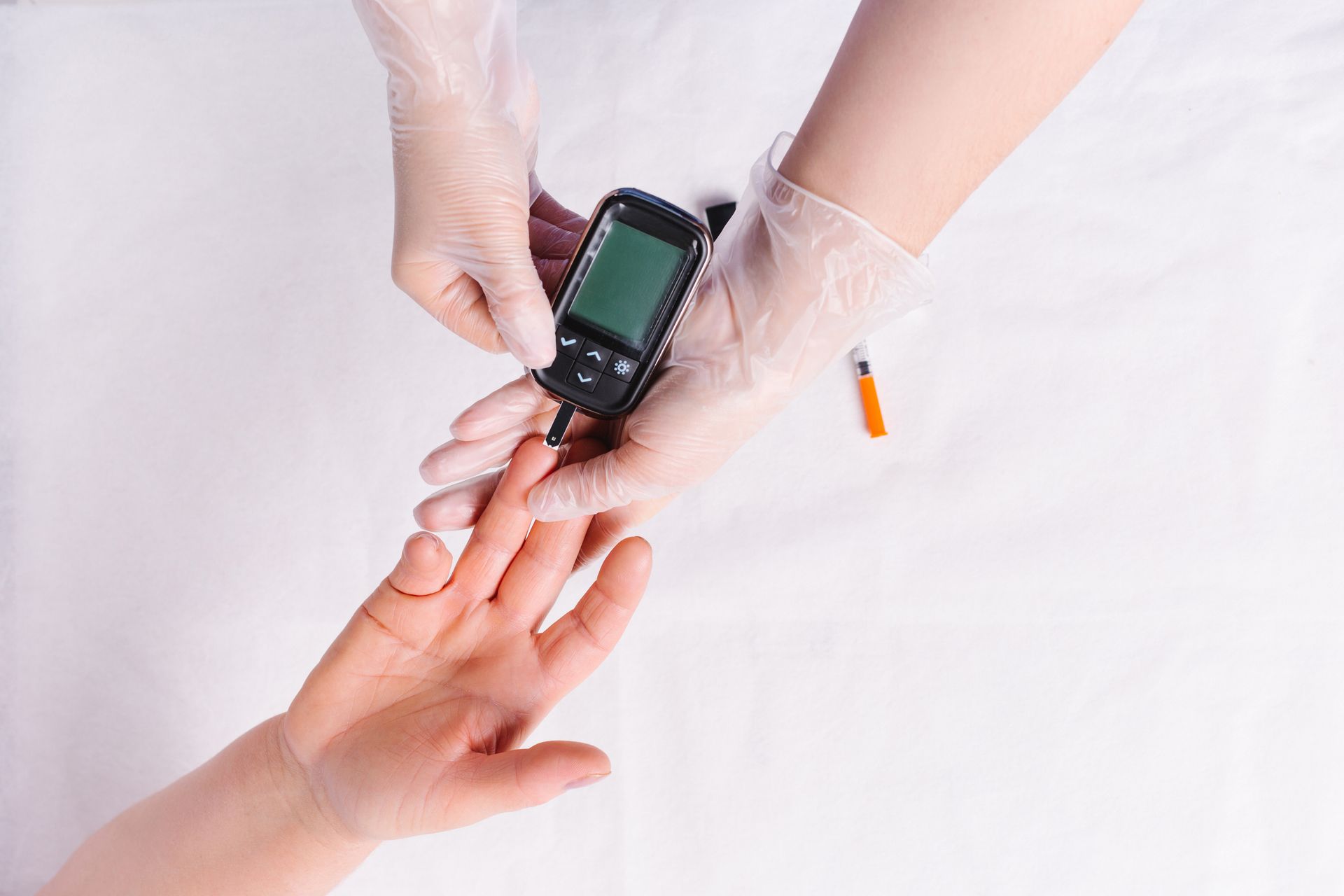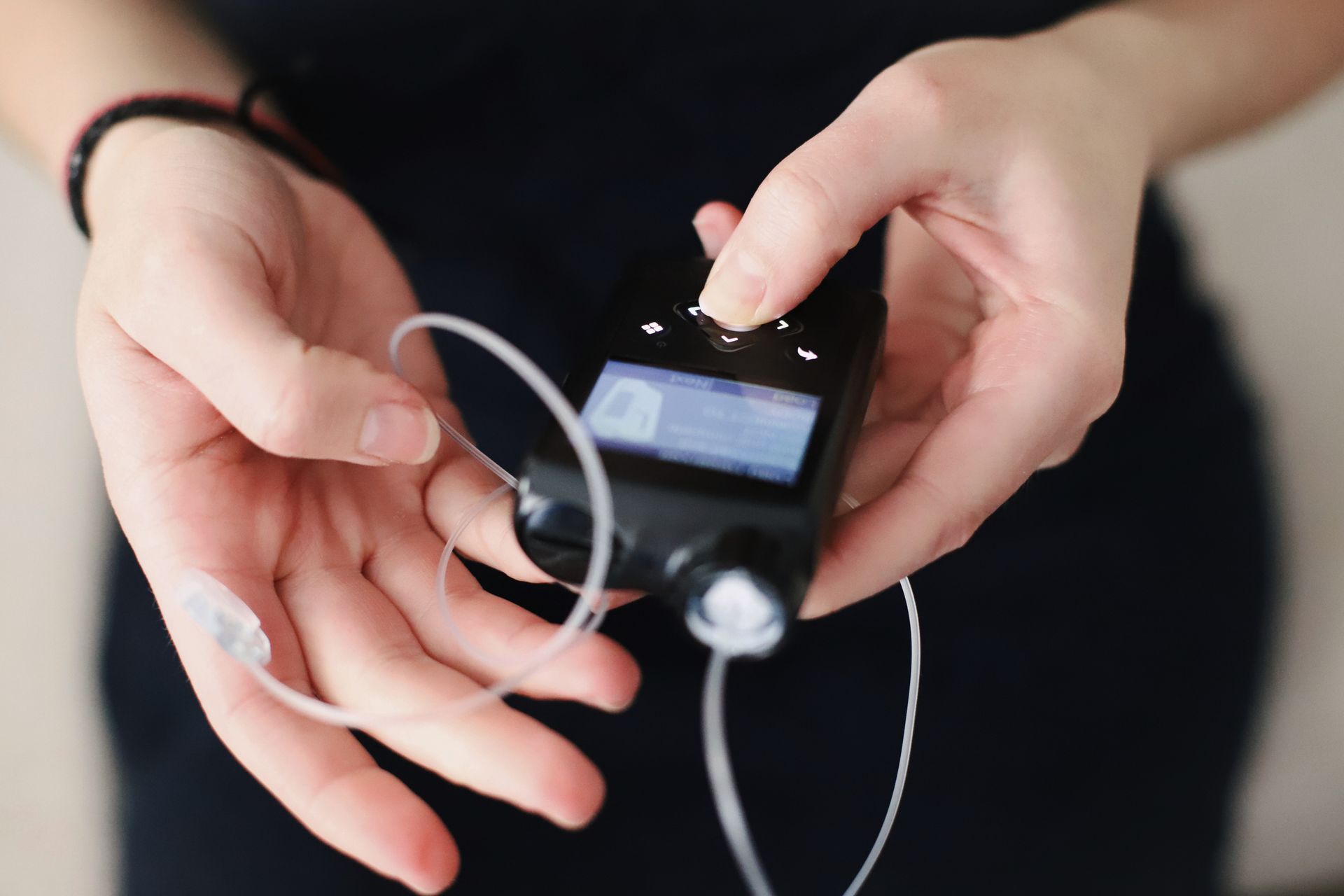Diabetes Education
Diabetes education provides people with the knowledge and skills they need to successfully manage their diabetes and prevent complications through problem-solving, learning coping skills, eating healthy, being active and regular monitoring.
Heart of America Medical Center’s Diabetes Education and Accreditation Program (D.E.A.P.) has been helping many who live with diabetes understand the disease and learn to manage it. DEAP is an educational program, taught by Kathy Brandt, is designed to teach people how to monitor and use the results adequately, understand risk factors, identify and prevent complications, meal planning, and understanding medications and medical care.
Diabetes Program Services Include:
Diabetes Screenings & Evaluations
Diabetes & Pregnancy Counseling
Classes & Support Groups
Heart of America Medical Center's Diabetes Support Group is for people with all types of diabetes and their support networks including spouses, family members, and friends. Each meeting has an educational component during which our staff will share ideas and information on how to live a healthier lifestyle.
Insulin Pump Therapy & Glucose Monitoring
Types of Diabetes
Diabetes is a disease in which the body does not produce or properly use insulin, the hormone that converts food into the energy needed for daily life. There are four types of diabetes:
Prediabetes
Blood glucose (sugar) levels that are higher than normal, but not yet high enough to be diagnosed as diabetes
Gestational
High blood sugar that develops at any time during pregnancy in a woman who does not have diabetes
Type 1
Most often diagnosed in children, teens, or young adults. In this lifelong disease, the body makes little or no insulin. The exact cause is unknown.
Type 2
The most common form of chronic diabetes, type 2 diabetes usually occurs slowly over time. Most people with type 2 diabetes are overweight when they are diagnosed.
Diabetes Risk Factors
You have a greater risk of developing diabetes if any of the following apply to you:
- Overweight (BMI greater than 25)
- Parents or siblings who have/had diabetes
- Native American, African American, Hispanic or Latino
- Physically inactive
- High blood pressure (130/80 or higher)
- High cholesterol
- Abnormal glucose tolerance in previous diabetes test
- Gave birth to a baby weighing more than 9 pounds and had gestational diabetes during the pregnancy
Diabetes Symptoms
If you have any of these signs or symptoms, you may be at risk for diabetes and should see your healthcare provider for a blood glucose test:
- Very thirsty or very hungry
- Urinating more than usual
- Feeling tired for no reason
- Weight loss without trying
- Sores heal slowly
- Blurred vision
- Losing feeling or having tingling in hands or feet.
Preventing Diabetes
You can prevent or delay diagnosis of type 2 diabetes by eating healthy, becoming more active, controlling your weight, and lowering your blood pressure and cholesterol by:
- Eating more fruits and vegetables
- Eating foods lower in fat and calories
- Reducing your sodium intake
- Cutting back on serving sizes at mealtime (try using a smaller plate)
- In restaurants, ordering smaller portions or putting half your meal into a carryout box before you start eating
- Drinking water or calorie-free drinks instead of soda or juice
- Aiming for 30 minutes of physical activity a day - 10 minutes after each meal is best - five days a week.
- Lowering your weight by 7 percent
Helpful Videos from the CDC:
Contact Us

Kathy Brandt, RDN, LRD, CDCES








